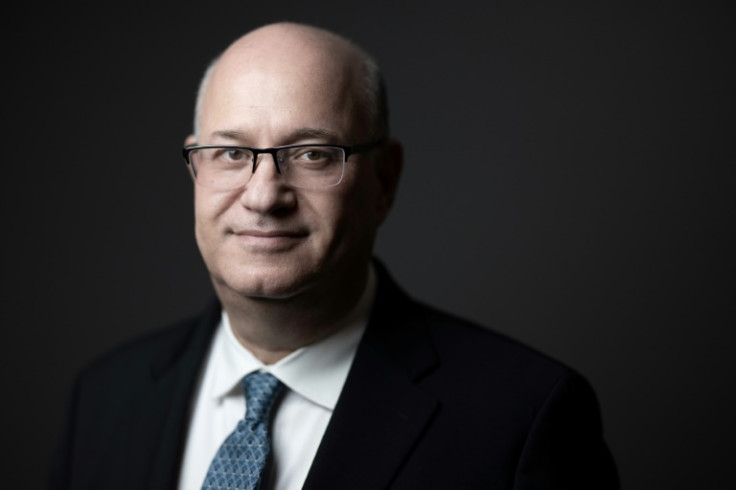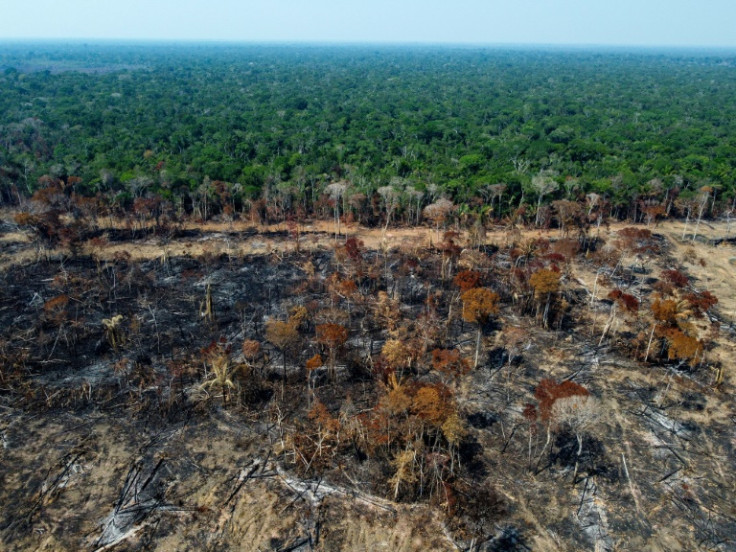Latin America Bank Eyes Finance 'Umbrella' Role For Amazon Rainforest

With eight countries sharing the Amazon, the Inter-American Development Bank wants to play a central role as an "umbrella" organisation coordinating climate-related projects in the vulnerable rainforest.
Stepping up the involvement of international financial organisations in the fight against climate change will be at key issue at a summit hosted by French President Emmanuel Macron on Thursday and Friday.
Brazil is home to around three-fifths of the Amazon, whose jungle stretches across more than five million kilometres (3.1 million miles), releasing vast quantities of oxygen and storing carbon dioxide.
Brazilian President Luiz Inacio Lula da Silva has vowed to make tackling illegal deforestation in the Amazon a top priority and make his country a global reference for sustainability.
Bolivia, Colombia, Ecuador, French Guiana, Peru, Surinam and Venezuela share the remainder of a tropical rainforest which has shrunk some 20 percent over the past 50 years, prompting a gamut of damage-limiting projects.
"The Amazon is not one country," IADB president Ilan Goldfajn told AFP in an interview.
"There are a lot of initiatives but we need to have a coordination," he said.
Goldfajn said the region needs an "umbrella program" that joins all the different initiatives in the interest of achieving more impact.
"We need a coordination that takes into account a holistic approach. Deforestation, biodiversity, and also develop the economy of the Amazon" in a sustainable fashion supporting biodiversity while providing jobs and respecting the needs of indigenous communities.
A former head of the Brazilian central bank and IMF Western Hemisphere director, Goldfajn said working together would help achieve the necessary scale, putting the financing need to tackle climate challenges at $1 trillion.
"Do we have the money? We still need to see how much we can get," said Goldfajn, outlining tools for that purpose such as issuance of "debt swap to nature ... where you exchange your debt for resources towards a cause, here, nature."
Government assistance and grants -- "money that doesn't need to come back" -- combined with his bank's financing at reduced interest rates would lessen the burden, he suggested.
The bank is also looking to promote decarbonisation across the region's economies, offering the carrots of partial debt forgiveness and advantageous interest rates.
The bank, created in 1959, has become prime international institution for long-term lending in Latin America and the Caribbean, distributing $14 billion in loans last year.
The bulk went to Argentina, Brazil and Mexico, chiefly for water and energy projects as well as strengthening business development.
Goldfajn wants the process to become more efficient, and better targeted to projects that align with climate goals.
"Yes, billions are important, but more important is what these billions are doing," he said.
The bank has stepped up the evaluation of the performance of projects and aims to be more reactive when economic or climate crises strike -- such as the recent ravages of drought which has weighed heavily on local agriculture in Argentina and its neighbours.
"We need to be able to concentrate on the impact we're generating. We cannot just think about how many dollars we lend," Goldfajn said, adding that more money lent didn't necessarily translate into more impact.
"We need to know how many people we are reaching. How many people were able to take out of poverty, how many people can have sanitation, how many people have access to fresh water, how many people are connected. All of this is the final goal," the IADB president said.
Goldfajn also encouraged Latin America to draw on its vast stores of lithium, a crucial material used in the production of rechargeable batteries for electronic goods, not least electric vehicles.
The region is home to an estimated two-thirds of global reserves.
This, he observed, gave Latin America "the comparative advantage to provide clean energy to the world" by boosting provision of clean and sustainable transport.
"We believe that doing the right policies, the right approaches, we will be one of the providers of the minerals that we will need for the future," Goldfajn said.

© Copyright AFP 2024. All rights reserved.











